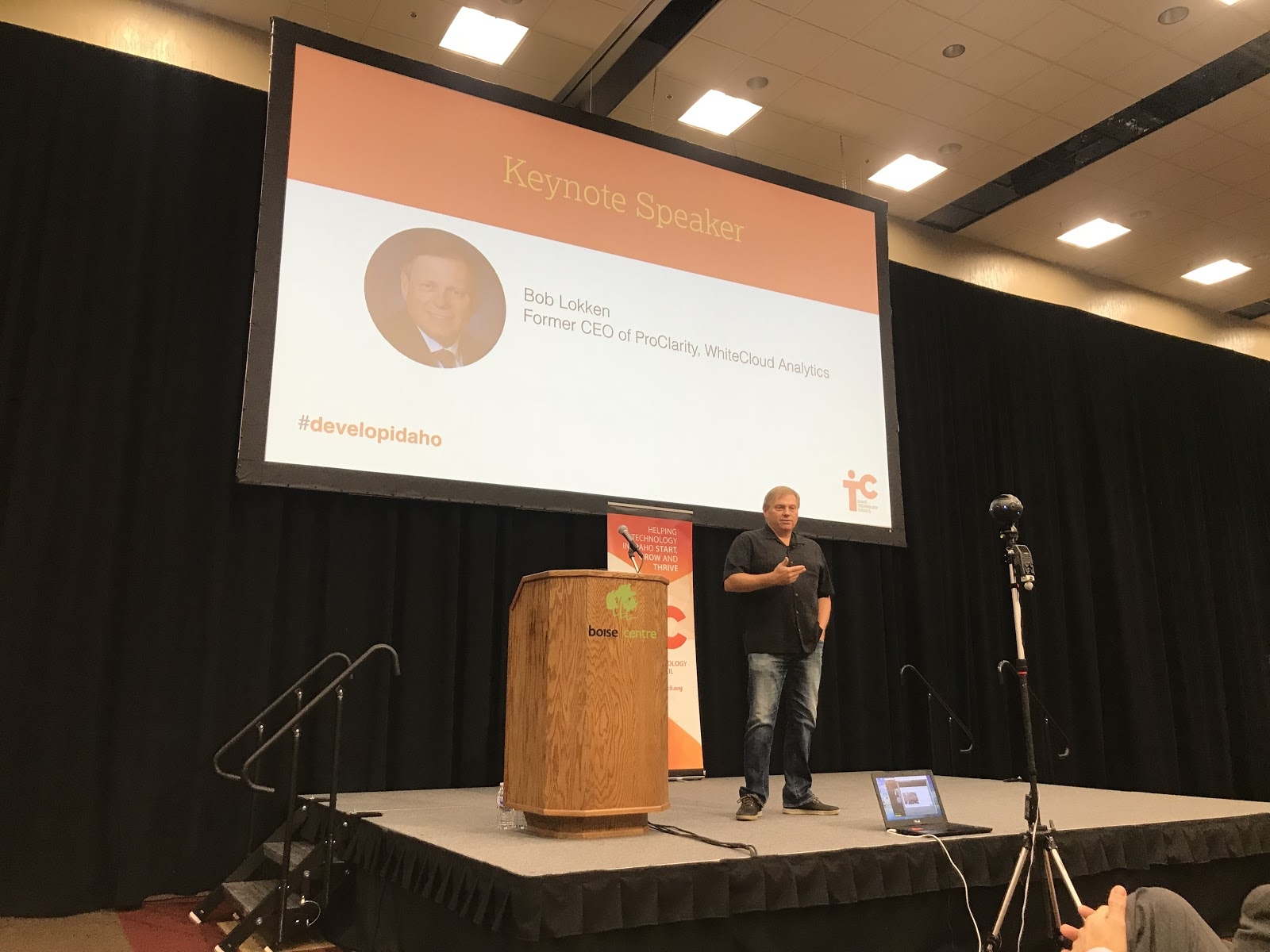
The develop.idaho conference is an annual event in downtown Boise that is put on by the Idaho Technology Council. The event was held on September 13th and brought together software engineers, business people, and passionate tech leaders. It was bigger and better than ever! After the keynote by serial tech entrepreneur Bob Lokken, it was time for the breakout sessions. I was asked to moderate a panel focused completely on VR, AR, and immersive technologies. We were lucky enough to get five high-powered panelists, each with their own area of expertise.
VR Breakout Session Expert Panelists
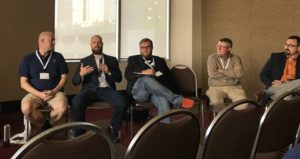 Dr. Anthony Ellertson is the Director of the new Games, Interactive Media and Mobile (GIMM) program at Boise State University. The GIMM program is funded under the College of Innovation and Design and is currently in its second year. His goal is to work with students and industry partners to leverage our collective knowledge of mobile development and games toward the creation of enhanced therapy tools and applications for children with Autism, communicative disorders, mobile outpatient monitoring, and virtual training for medical professionals.
Dr. Anthony Ellertson is the Director of the new Games, Interactive Media and Mobile (GIMM) program at Boise State University. The GIMM program is funded under the College of Innovation and Design and is currently in its second year. His goal is to work with students and industry partners to leverage our collective knowledge of mobile development and games toward the creation of enhanced therapy tools and applications for children with Autism, communicative disorders, mobile outpatient monitoring, and virtual training for medical professionals.
Markus Nigrin is the co-founder of Blocksmith, Inc and an angel investor and startup mentor. He was the founder of Galactic Bits, an independent video game developer making games and entertainment apps on Steam, iOS, Android & Amazon, with more than three million downloads. He was also the co-founder of Silverwire, a digital imaging software company, acquired by HP 2006.
David Cleverdon attended the University of Idaho and the University of Washington and has almost 30 years of experience in the marketing and communication industry. His latest venture is an organization that is completely focused on immersive technology called 360immersive. This company provides education as well as creative services pertaining to virtual reality.
Nick Crabbs is a partner and founding member of Vynyl, a product development firm that works with corporations, institutions, and investors to build unique mobile, web, VR & AR applications that are technically excellent, visually appealing, and create real & measurable business value. Prior to his work with Vynyl, Nick spent nearly a decade working for some of the nation's largest banking institutions, local municipalities, and large enterprise environments as an IT specialist and manager.
With over 10 years as a creative director in the gaming, mobile app and print industries and 5 years at Intel as a software engineer and UX lead, Duane Mathes has a unique talent of translating abstract creative concepts into actionable, real-world results. He is currently the Senior VP of Game Development for Black Box VR and recently became Unity-certified, completing the test in world record time.
Virtual reality is still new to most people in 2017, so the panel discussion served as an intro to the technologies, the development tools, and a look into the future.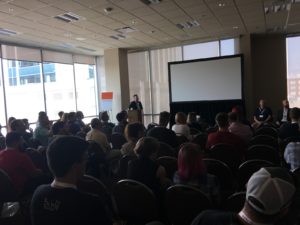
Even with such a broad overview, a few key insights came to light:
- Virtual reality, augmented reality, mixed reality, and 360 video are unique but each have their own strengths and use cases. Fully understanding what you are trying to accomplish with your product will determine which type of immersive technology is best for you and your users.
- VR is more than just games and entertainment. Looking at it just as some type of video game console is short-sighted. Immersive tech is a brand new computing and storytelling medium. It brings new capabilities that the world has never seen with applications in fields like health, medicine, travel, politics, news, real estate, design, collaboration, education, and much more.
- Today’s consumer and business headsets are way more advanced than ever before, but we are still in very early days. The billions of dollars of investment into hardware and software from the biggest tech companies in the world are moving things forward at an incredible pace. We are basically in the “brick cell phone” days. Prepare now to take advantage of the eventual move to mainstream usage.
- Virtual reality is currently in the lead when it comes to market share, but augmented reality could quickly bypass it now that companies like Apple, Samsung, and Google are releasing AR products to market.
- Even though you are cutting yourself off from the physical world, virtual reality is anything but solitary. Networking, collaboration, and conferencing are powerful aspects of VR that can bring you together with others in a much more visceral way than phone, email, or even Skype.
- Getting started with VR development is incredibly simple and cheap. You can use free development programs like Unity and within a few hours you can put your headset on and be inside a world of your own creation. Free tutorials online and classes at Boise State University can take you from beginner to expert. The world of VR is new so best practices are still being discovered. You can be a part of it!
- Augmented reality demos can be created quickly with ARKit and ARCore. You can film your first 360 degree video with a $120 camera that connects to your smartphone. It really is that simple to get started.
- VR and AR will be a huge, lucrative industry by 2020 with new hardware and software startups growing into large companies and removing incumbents from dominance. The power of immersive technologies will transform the way we work, play, learn, and socialize. Now is the chance for Idaho to get involved and take the lead.
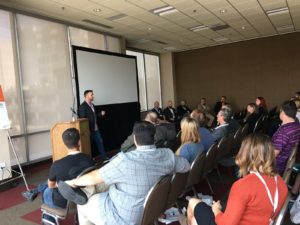 Thank you to the Idaho Technology Council for hosting such a great event and for including virtual reality. The panelists did a tremendous job and I look forward to learning more from them all as they continue to develop their companies and educational programs. This is just the start.
Thank you to the Idaho Technology Council for hosting such a great event and for including virtual reality. The panelists did a tremendous job and I look forward to learning more from them all as they continue to develop their companies and educational programs. This is just the start.
Join us at the Idaho Virtual Reality Council… we’re here to help!


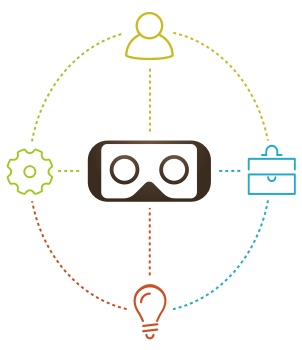
Recent Comments